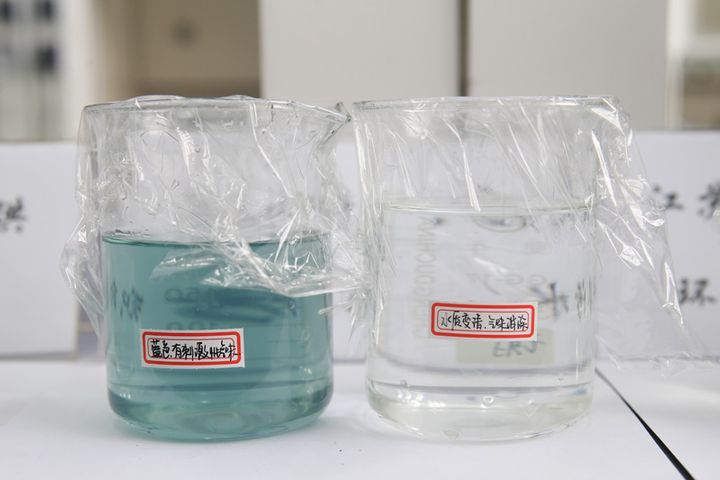 Graphene Could Soon Be Used to Clean Up China's Waterways
Graphene Could Soon Be Used to Clean Up China's Waterways(Yicai Global) May 24 -- Chinese scientists have started testing a new material that can convert pollution into water and carbon dioxide, which could become a key method in the country's efforts to clean up its lakes and rivers.
The material is a mixture of three-dimensional graphene tubes and black titanium dioxide, state-run news agency Xinhua reported. The graphene absorbs toxins and the titanium dioxide acts as a photocatalyst, using light to degrade toxins. The resulting increase in oxygen content enforces a waterway's ability to restore its natural balance.
Researchers from the Shanghai Institute of Ceramics of the Chinese Academy of Sciences have conducted trials using nets made from the innovative material over the past month to clean up areas in eastern Anhui and Jiangsu provinces, as well as in Shanghai, the report said.
More than 50 patents have been granted for the material so far and the team, led by institute researcher Huang Fuqiang, won second prize at the State Natural Science Awards at the beginning of the year.
Two Russian scientists won the 2010 Nobel Prize in Physics for discovering graphene. The carbon-based material -- which is very light, thin and can conduct electricity -- has been hailed as a supermaterial tipped to revolutionize tech sectors ranging from medicine to telecoms and computing.
The new treatment developed by Huang's team at the Shanghai Institute of Ceramics helped to clean lakes in Shanghai's Tianshan and Zhongshan parks. Residents said they used to be filled with stinking sludge, with dead fish floating on the surface. After a seven-day treatment, water purity indicators returned to levels suitable for agricultural purposes, according to tests done by Shanghai Light Industry Institute of Environmental Technology.
In another test zone in Feidong county, Anhui, the team treated the seriously polluted upper and middle reaches of the Dingguang River. Water quality improved by around 60 percent, said Xue Tiecheng, a director from the Feidong Environmental Protection Bureau.
Editors: Emmi Laine, William Clegg